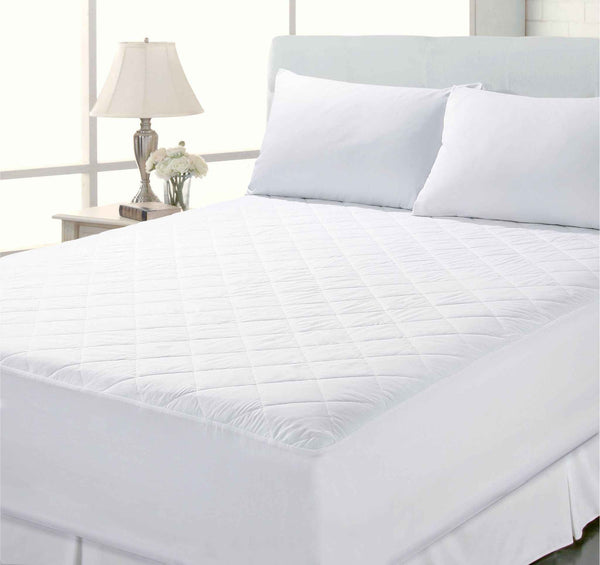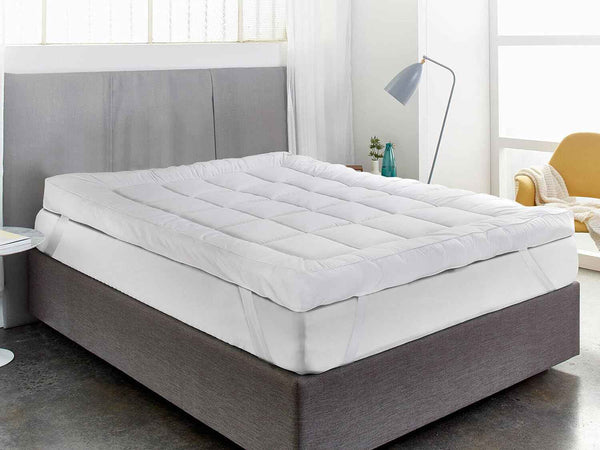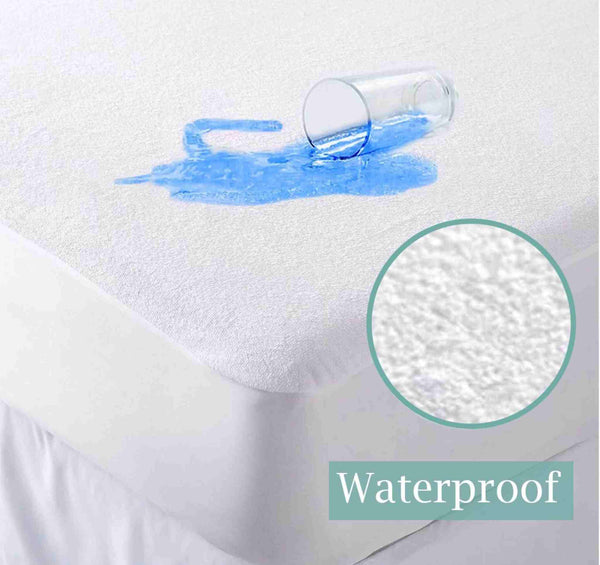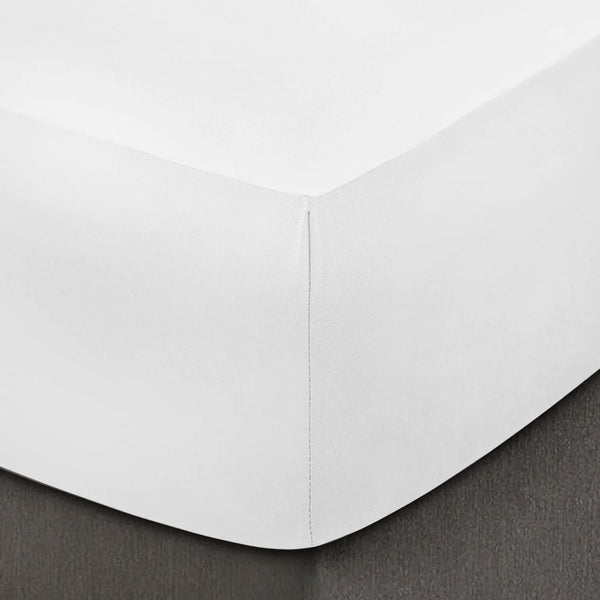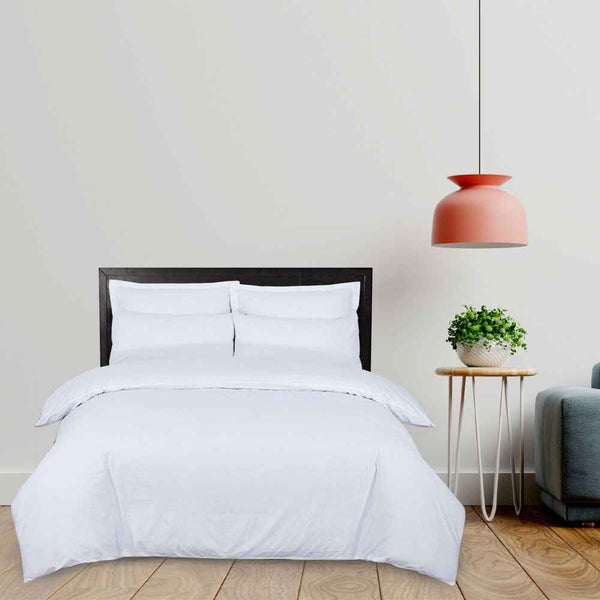In the UK, beautifully styled bedding is more than just a visual pleasure—it's a reflection of comfort, care, and personal style. Whether you're working with a decorative quilt, layering with a duvet cover, or trying to master the hospital corners technique, folding a quilt correctly can elevate your entire bedroom aesthetic. In this guide, we offer expert insight into quilt folding techniques, practical bedding tips, and how to achieve a luxury hotel bed look at home.
Why Learning to Fold and Style a Quilt Properly Matters
First Impressions and Interior Appeal
Your bed is often the focal point of your bedroom. A neatly folded quilt with aligned edges and a smooth finish instantly communicates attention to detail and style. In interior design, the foot-of-bed fold or a carefully draped quilt on a bed adds a touch of sophistication.
First Impressions and Interior Appeal
Your bed is often the focal point of your bedroom. A neatly folded quilt with aligned edges and a smooth finish instantly communicates attention to detail and style. In interior design, the foot-of-bed fold or a carefully draped quilt on a bed adds a touch of sophistication.
Practical Benefits for Everyday Use
Folding your quilt in bed the right way not only improves the look of your room but also makes it easier to pull on and off during use. It's especially helpful for heavier or mid-weight options that are ideal for UK weather. A good fold also ensures even distribution of fabric, preventing lumping or sagging.
Preserving the Longevity of Quilted Bedding
When you fold a quilt properly, you reduce wear and tear on seams and corners. Using techniques like the corner tuck method or gently smoothing out wrinkles before storing can help maintain your bedding’s shape and appearance for years.
UK Bedding Trends & Why It’s Important Locally
In British homes, the trend leans toward layered bedding using a mix of quilt, duvet, and throw pillows. Styling a bed isn't just for show; it reflects seasonal changes and comfort preferences. With many opting for breathable organic cotton or hypoallergenic quilts, knowing how to fold the quilt without creases or bulk is essential for maintaining both style and comfort.
Understanding the Basics – What Makes Up Your Bed Set
Before diving into advanced folding methods, it's vital to understand the different components that make up a complete bed setup. From the mattress to the finishing touches like a bed runner, each element contributes to your bed's overall look and feel.
Mattress and Mattress Cover
Choosing the Right Mattress
Your mattress is the foundation of your bed. For quilt folding to work effectively, a flat, even mattress is essential. UK households often choose medium-firm mattresses that offer the right support for layered bedding.
Benefits of a Mattress Cover
Using a mattress cover protects your investment and creates a smooth surface for layering your quilt or bedspread. Opt for breathable, waterproof covers to enhance hygiene and comfort.
Fitted Sheets and Flat Sheets
Function of Fitted Sheets
Fitted sheets with deep pockets help secure the bedding in place. Choose sizes compatible with UK standards: single, double, king, or super king.
Fitted Sheets and Flat Sheets
Function of Fitted Sheets
Fitted sheets with deep pockets help secure the bedding in place. Choose sizes compatible with UK standards: single, double, king, or super king.
Role of Flat Sheets
Flat sheets add an extra layer between you and the quilt, which helps preserve cleanliness and adds a crisp, layered effect when folding.
Quilt, Duvet, and Duvet Cover Differences
Understanding the Key Differences
A duvet is typically fluffier and used with a duvet cover, while a quilt is stitched and flatter. Quilts are often decorative and ideal for end-of-bed quilt arrangements in warmer UK seasons.
Using Them Together
For colder months, you might pair a duvet with quilt. Place the quilt above or below the duvet depending on your desired bed styling tips.
Throw Pillows, Decorative Cushions & Bed Runners
Throw Pillows and Cushions
Strategically placing decorative cushions can enhance the quilt’s aesthetic. Choose textures and colours that contrast with the quilt duvet cover for a balanced look.
Using a Bed Runner or Bed Scarf
Adding a bed runner or scarf at the foot of the bed brings hotel-style elegance. Pair with a folded quilt for a complete look that blends function and fashion.
Bed Skirts and Bed Frames
Why Bed Skirts Matter
Bed skirts offer a clean, polished look by hiding under-bed storage. They also create a visual boundary that enhances quilt display.
Selecting the Right Bed Frame
Your bed frame affects how your quilt drapes. For instance, platform beds provide more space for decorative hanging, while traditional frames suit neatly folded quilts.
If you're looking for premium-quality quilts and bedding accessories in the UK, visit Dtex Homes, your trusted partner in stylish, breathable, and cozy bedding essentials.
The Essentials Before You Fold a Quilt

Before diving into folding techniques, it's important to prepare your bedding space. The right material, tools, and order of layers help ensure a neat finish and longer quilt life. Here’s what you need to know before you fold the quilt and style your bed quilt like a pro.
Choose the Right Quilt Material (Breathable Cotton, Organic Options, etc.)
Why Material Matters
Choosing the right material sets the tone for your bed’s look and feel. In the UK, where the climate shifts often, a breathable organic cotton quilt offers comfort in both warm and cool weather. Materials like Egyptian cotton, bamboo, or organic cotton help regulate temperature and resist allergens.
Best UK Quilt Options
Lightweight quilts are ideal for spring/summer, while mid-weight or heavy quilts suit winter. At Dtex Homes UK, we offer a curated selection of high-quality quilts perfect for layering or standalone use.
Ironing or Steaming – How to Smooth Wrinkles
Why You Should Smooth the Quilt
Nothing disrupts a tidy bed like a wrinkled quilt. A smooth surface is essential before attempting any quilt folding techniques. Ironing or using a handheld steamer gives your quilt that crisp, clean look reminiscent of luxury hotel bedding.
How to Do It Safely
Always check the care label. For delicate materials, opt for a low-heat iron or steamer. Work from one end of the quilt to the other, smoothing out wrinkles with light pressure to avoid fabric damage.Aligning the Quilt with Mattress Edges
Start with a Balanced Position
To achieve symmetry, begin by placing your quilt on the bed so that all sides hang evenly. This is especially important for double, king, and super king beds which are common in UK homes.
Check Mattress Size Compatibility
Use mattress markers or visual guides to align the quilt before folding. A well-aligned quilt ensures the final folds are clean, with no side longer or bulkier than the other.
Layering Your Bedding – What Goes First?
The Ideal Bedding Order
- Mattress protector or topper
- Fitted sheet
- Flat sheet
- Duvet or blanket
- Quilt
- Throw pillows and decorative cushions
Top Styling Tip
Layering your duvet and quilt together adds volume and a luxurious look. For contrast, use a solid-coloured quilt over a patterned duvet or vice versa.
Selecting Quilt Sizes Suitable for UK Bed Dimensions
Standard Quilt Sizes in the UK
Make sure your quilt size complements your bed. Here are the standard dimensions to follow:
- Single: 135 x 200 cm
- Double: 200 x 200 cm
- King: 225 x 220 cm
- Super King: 260 x 220 cm
Choose Slightly Oversized for Layering
Opting for a slightly oversized quilt helps you create folds and drapes easily, especially when doing the foot-of-bed fold or hospital corner tuck.
Step-by-Step Guide – How to Fold a Quilt on a Bed

Now that your bedding is prepped and your quilt smoothed, it’s time to master the technique. Follow these professional steps to achieve a tidy, stylish fold that looks both decorative and inviting.
Step 1: Lay the Quilt Flat Across the Bed
Spread the quilt over your bed surface, ensuring it’s flat and free of wrinkles. Line up the edges with the mattress, making sure there’s equal overhang on both sides. This creates the base for your fold and ensures an even distribution of fabric.
Step 2: Align the Edges Symmetrically
Visually check and adjust the quilt’s placement so that it mirrors both sides of the bed. This is crucial for beds with visible frames or bed skirts. Use your hands to smooth out wrinkles and align any patterns or stitching.
Step 3: Perform the First Horizontal Fold
Take the bottom edge of the quilt and fold it upward towards the center of the bed. Repeat this process two or three times depending on the quilt length and bed size. Keep each fold even, about 18–24 inches for visual balance.
Step 4: Tuck Under Mattress Using the Corner Tuck Method
Once folded, take the quilt's edge and tuck it neatly under the mattress using the classic corner tuck method. Tuck only the bottom fold, leaving the top to drape or layer. This creates a polished, hotel-style appearance.
Using Hospital Corners
If desired, perform hospital corners for a sharper look. Fold the quilt’s side up at a 45° angle, then tuck the bottom layer under the mattress before laying the angled flap down.
Step 5: Smooth the Surface for an Even Distribution
Gently press along the quilt’s surface to smooth any bumps or uneven layers. Adjust throw pillows or decorative cushions around the quilt to enhance the look. This final touch adds a clean finish and elevates the entire bed linen display.
Step 6: Final Fold and Neat Finish
If folding the quilt to display at the foot of the bed, fold it once more lengthwise and drape it horizontally across the lower third of the mattress. Make sure the edges are straight and free of lumps for a neat finish.
Popular Quilt Folding Techniques for Different Bed Styles

Folding a quilt isn't just functional—it's an art form. The technique you choose can completely transform the look of your bedroom. Whether you're going for a clean, modern look or a cozy, layered one, there’s a quilt fold style perfect for every bed type.
Hotel-Style Bed Fold
Creating a Luxury Look
This method is inspired by high-end hotel suites. Begin by folding the quilt in thirds lengthwise, then lay it across the foot of the bed. Smooth the fabric and align it evenly across the mattress width. The goal is to mimic that luxury hotel bedding aesthetic.
Layer with Bed Scarves
Enhance the presentation using a bed scarf or runner layered over the folded quilt. This technique pairs well with decorative cushions and a contrasting duvet cover.
Decorative Bedding Fold for Showroom Appeal
Staged & Stylish
This fold is commonly used in bedding stores and magazines. Fold the quilt accordion-style or roll it halfway down the bed, allowing a duvet with quilt layering effect. It's excellent for showing off embroidered or printed quilt designs.
End-of-Bed Quilt Arrangement
Functional & Elegant
Fold your quilt in half or thirds and place it at the foot of the bed. This end-of-bed quilt arrangement adds texture and provides extra warmth when needed without overwhelming the entire bedding setup.
Classic Foot-of-Bed Fold
Simplistic Elegance
Similar to the hotel fold but less structured. Simply fold the quilt in half once and lay it neatly over the edge. This fold gives a tidy finish with minimal effort, ideal for everyday UK homes where comfort and style are equally valued.
The Casual Throw-Over Look
Relaxed & Inviting
This informal style involves gently tossing the quilt over one side of the bed. It's ideal for lightweight or breathable quilts. Perfect for creating a cozy, "lived-in" bedroom aesthetic.
How to Style a Quilt on a Bed Like a Pro

Styling a quilt involves more than just folding—it’s about using visual layers, colour contrast, and texture to create a complete bedroom aesthetic. Here are several professional techniques for how to style a quilt on a bed in the UK.
Style No. 1: Over the Duvet
Extra Warmth and Visual Contrast
Place your quilt directly on top of the duvet cover and fold it halfway back. This creates a layered look and adds insulation for colder UK nights. Choose a contrasting colour or pattern for a bold finish.
Style No. 2: Under the Duvet
Sleek and Subtle
For a more minimalist look, lay your quilt beneath the duvet. This is ideal when using the quilt as a base layer. It offers a cleaner appearance while maintaining extra warmth underneath the duvet for blanket effect.
Style No. 3: As the Main Top Layer
Quilt as the Statement Piece
Let the quilt shine as the primary bed cover. Layer throw pillows and add a decorative cushion to elevate its appeal. This is ideal for embroidered or patterned quilt duvet covers.
Styling for Different Seasons (Light vs. Heavy Quilts)
Adapt Based on Temperature
In warmer months, opt for lightweight breathable quilts made of organic cotton. During winter, switch to heavier options layered over or under a duvet for a cozy yet breathable setup. Adjust colours and textures seasonally for a fresh look.
Colour Contrast and Coordinating with Decor
Harmonising with Bedroom Palettes
Choose quilts that either complement or contrast your bedroom decor. Soft pastels work well in neutral rooms, while bold colours add energy to minimalist setups. Coordinate with bed linen displays and wall colours for a cohesive appearance.
Using Pillows and Throws for Enhanced Aesthetic
Complete the Look
Layer your quilt with throw pillows, decorative cushions, and a bed runner to achieve a fully styled bed. Mix textures—like velvet, linen, or knitted throws—to add depth and interest to the final presentation.
The Best Way to Display Decorative Quilts

Displaying a quilt isn’t just about storage—it's about showcasing craftsmanship and style. Whether it's a vintage heirloom or a designer piece, here's how to display your decorative quilt with care and creativity.
Displaying a Quilt on the Bed
Make it the Star
Position the quilt fully unfolded across the bed or gently draped at an angle. You can also lay it diagonally to highlight unique stitching. This method works best with quilts that feature intricate patterns or embroidery.
Folding to Prevent Creasing or Damage
Smart Storage & Display
To avoid permanent creases, fold loosely and rotate regularly. Avoid storing folded quilts in tight spaces for long periods.
Layering with Neutral Bedding to Highlight Patterns
Create Visual Balance
Use neutral or solid-coloured flat sheets and duvet covers to let the quilt design stand out. This layering technique draws attention to detailed quilting and makes the bed look thoughtfully styled.
Drape vs. Fold: What Works Best for Visual Appeal
Understand the Look You Want
Draping offers a relaxed, bohemian feel—ideal for casual bedrooms. Folding delivers a formal and tidy aesthetic. Mix and match depending on the room style or occasion.
Tips for Maintaining a Folded Quilt

Proper maintenance extends the life of your quilt while preserving its beauty and structure. Whether you’re storing for the season or simply folding for daily use, these tips ensure your quilt in bed stays clean, crisp, and comfortable.
How to Clean and Store Quilts Properly
Regular Cleaning Without Damage
Always refer to the care label before washing. Most quilting bedding requires gentle cycles or professional dry cleaning. For at-home care, use mild detergents and cold water.
Smart Storage Tips
Store folded quilts in a breathable cotton bag or a pillowcase. Avoid plastic containers as they trap moisture, leading to mould or mildew.
Avoiding Fabric Damage and Fading
Shielding from Light and Heat
Keep folded quilts out of direct sunlight to prevent colour fading. Avoid placing heavy objects on top to preserve the fabric's texture and avoid permanent creases.
When to Rotate or Refold Quilts
Preventing Crease Marks
Rotate and refold your quilt every 1–2 months if it’s stored long-term. Alternate fold lines to prevent permanent creases, especially in vintage or heirloom quilts.
Breathability and Seasonal Storage for UK Homes
Climate Considerations
UK homes often vary in humidity, so proper seasonal storage is vital. Opt for breathable cotton containers or storage trunks lined with acid-free paper to protect your bed set with quilt and maintain airflow.
Common Mistakes to Avoid When Folding or Styling a Quilt

While styling a quilt can seem straightforward, certain mistakes can reduce its impact or damage the material. Avoid these common missteps to preserve the beauty and integrity of your bedding setup.
Overstuffing the Bed with Layers
When Less is More
Too many layers of duvet and quilt can overwhelm the bed and diminish comfort. Use only the necessary bedding elements and avoid layering quilts of similar thickness.
Incorrect Edge Alignment
Disrupted Symmetry
One of the most overlooked aspects of styling is alignment. Always align edges symmetrically to maintain balance and visual harmony. Uneven edges make even the best bedding look untidy.
Mixing Mismatched Colours or Fabrics
Styling with Intent
When combining bedding layers, stick to a cohesive colour palette. Avoid mixing bold prints with bold colours unless purposefully styled. Choose complementary tones to accent your quilt cover and duvet cover.
Forgetting to Smooth Wrinkles
Finish with a Polish
A quick pass of your hand or a steamer ensures that no creases or bunching ruin the final look. Smooth out wrinkles during every fold for a more professional finish.
Expert Recommendations: Bedding Accessories That Enhance Your Quilt Display
Elevate your bed's appearance with accessories that complement your quilt. Whether it’s about texture, colour coordination, or layering depth, these elements refine your overall bedding style.
Best UK-Sourced Quilt Duvet Covers
At Dtex Homes UK, we offer premium-quality quilt duvet covers in breathable cotton, percale, and sateen weaves. Designed for both durability and elegance, our covers feature secure closures and tailored fits for all standard UK sizes.
Fitted Sheets that Complement Quilt Designs
Choose fitted sheets that support the colour scheme of your quilt. Look for deep-pocket designs to ensure they stay in place under layered bedding. Neutral tones such as white, beige, or grey work well with patterned quilts.
Breathable Cotton Flat Sheets
Flat sheets serve both aesthetic and functional roles. They protect the quilt from direct skin contact and enhance the layering effect. Opt for breathable cotton with a 200–400 thread count for year-round comfort.
Matching Pillowcases and Bed Scarves
Coordinate pillowcases with your quilt to tie the entire look together. Add a bed scarf at the foot for an elegant touch. This layering technique adds a professional, hotel-like finish to your bedroom setup.
UK-Focused Bedding Advice – What’s Trending in Quilt Styling?
Staying current with bedding trends can help you maintain a stylish and comfortable bedroom. Here’s what’s trending right now in the UK when it comes to styling quilts.
Layering for Both Comfort and Visual Impact
Layering remains a top trend. Combine a flat sheet, a light quilt, and a duvet for blanket layering to achieve both warmth and dimension. Add throw pillows and decorative cushions for added texture and interest.
Luxury Hotel-Inspired Bed Setup at Home
Recreate that crisp hotel bed feel by mastering the hospital corners technique, using high-thread-count sheets, and folding the quilt neatly across the foot of the bed. Add a quilted bed runner to complete the look.
Seasonal Style Swaps (Autumn/Winter vs. Spring/Summer)
In colder months, layer heavier duvets with quilts and deep colour palettes. During warmer seasons, switch to lightweight, breathable cotton quilts in soft pastels or floral prints. This keeps your space visually fresh and seasonally appropriate.
FAQs
What is the difference between a duvet and a quilt?
A duvet is a soft, fluffy insert typically paired with a cover, while a quilt is a stitched bed covering that can serve as both decor and warmth. Quilts are often flatter and more structured than duvets.
Can I use both a duvet and quilt together?
Absolutely. Use a quilt under the duvet for additional warmth or above it for decorative layering. This is especially useful during UK winters when extra insulation is needed.
How to arrange a quilt on a bed?
Start with a smooth base, fold your quilt horizontally, and lay it at the foot or centre of the bed. Add pillows and a bed runner for a complete, styled look.
How to fold a quilt to give as a gift?
Fold the quilt accordion-style, then roll it tightly. Place in a breathable fabric bag or gift box. Add a care card for a thoughtful presentation.
How to fold a bed duvet?
Lay flat, fold in thirds lengthwise, then in half horizontally. Store in a cotton bag or cover with a sheet to protect from dust.
How to display a quilt on a bed?
Lay it diagonally across the bed or fold and place at the foot. Use neutral bedding underneath to allow the quilt's colours and stitching to stand out.


